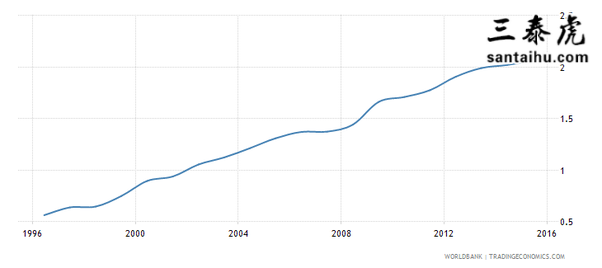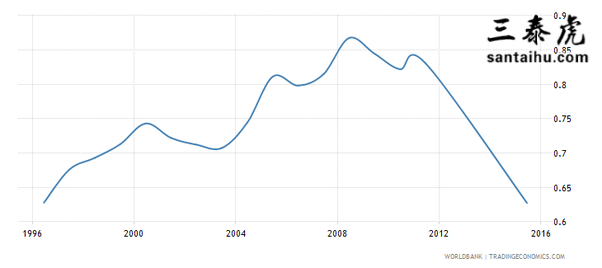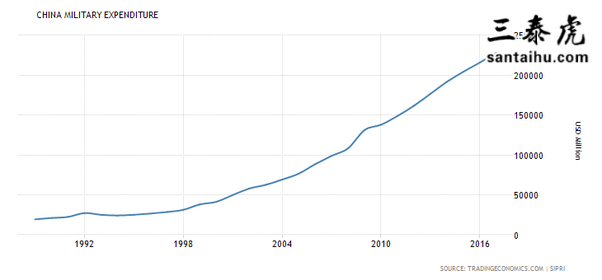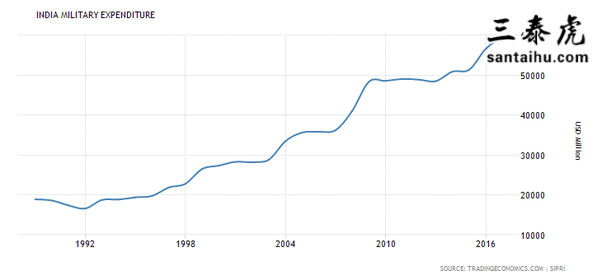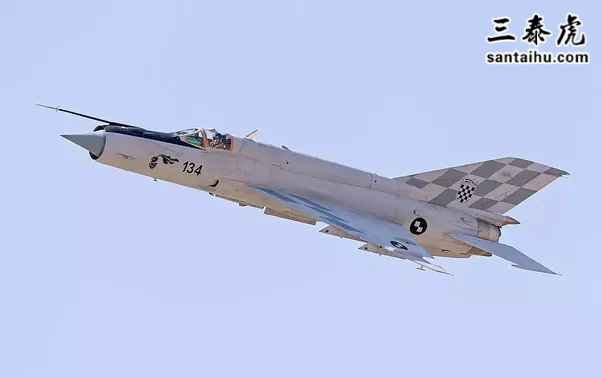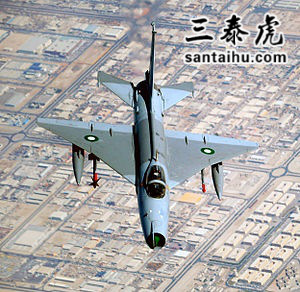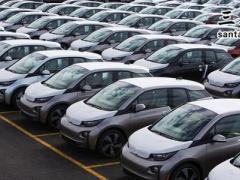Quora网友评: 为什么印度要大量进口武器,而中国选择自主研发
Why does India import a lot of military products instead of developing and producing them locally li
Why does India import a lot of military products instead of developing and producing them locally like China?
为什么印度要大量进口军工产品,而不像中国那样自主研发和生产呢?
Quora评论翻译:
JC Hóu, studied at National Taiwan University
The existing answers here lack perspective.
目前看到的回答都缺乏深度。
They are either from Indians ranting about the inefficiency, corruption and lack of vision of the Indian leadership, both in the past and present, or from either Indians or non-Indians attributing the disparity to flimsy arguments (“India licenses and builds while China copies”, or “China had a stronger industry of manufacturing way back than India”, or “India was too socialist while China embraced capitalism earlier”, or “China has discipline and authoritarian control while India is much more loose” - do people see these last two points are contradictory??) lacking quantitative support.
这些回答要么是一些印度人在那数落印度的效率低下、腐败和缺乏远见的领导(无论是过去还是现在),要么是一些印度人或非印度人将这种差异归因于站不住脚的论点-“印度自主研发,而中国一味抄袭”、“中国的制造业比印度强大得多”,“印度太过社会主义而中国更早地接受了资本主义”,或者“中国有纪律和威权控制,而印度则宽松得多”——不认为最后这两点是矛盾的吗??而且站不住脚。
Why doesn’t anyone see the biggest reason can be shown with a simple, straightforward comparison of INPUT?
为什么没人发现从双方的研发投入对比就能看出最大的原因呢?
Research and development expenditure (% of GDP) in China
中国的研发支出(占GDP百分比)
Research and development expenditure (% of GDP) in India
印度的研发支出(占GDP的百分比)
See how the numbers differ? This is without considering the nominal gap of GDP between the countries. To put things into perspective, the US always spends well above 2%: Research and development expenditure (% of GDP) in the United States.
看出这两组数字有什么不同了吗?这还没有考虑两国名义GDP的差距。而美国的研发支出总是占GDP的2%以上:参考美国的研发支出(占GDP百分比)。
Here’s another set:
以下是另一组数据:
China Military Expenditure | 1989-2018 | Data | Chart | Calendar | Forecast
中国军费开支(1989-2018)
India Military Expenditure | 1956-2018 | Data | Chart | Calendar | Forecast
印度军费开支(1956-2018)
Even in early 1990s (where the curve starts) China already spent more, and that was AFTER significant cuts compared to the 1970s and early 1980s.
即便是在上世纪90年代初,中国的军费支出就更多。与70、80年代初相比,印度在90年代处有大幅削减。
Eventually, it boils down to who has placed more investment on R&D and defense procurement. India has spent much less, rendering efficiency disparity far less dominant, let alone all the other pseudo-arguments. Can you outperform someone who outspends you? Sure it's possible in theory, but unlikely in reality.
So there should be little surprise to see disparities like we are seeing today.
所以问题应归结为哪国在研发和国防采购上投入了更多的资金。印度在这方面的支出要少得多,所以说印度效率低这种观点站不住脚,更不用说其它伪论点了。你能比得过研发支出超过你的人吗?虽然这在理论上是可能的,但在现实中却不太可能。因此,看到如今的差距也不足为奇。
Sterling Saini, Aviation Enthusiast; specifically SCO jet fighters.
India did develop a bit of their own tech, but there is a problem with that.
(Note that this answer is for the air force component only. I am not an expert in the army or navy)
印度确实自主研发了一些技术,但却存在一个问题。
(我不是陆军或海军方面的专家,所以我的回答仅适用于空军方面。)
The West and the USSR had been developing weapons for a long time. And they had the funds to pursue expensive R & D that most countries couldn’t spend. So whichever weapons India built, foreign weapons were a lot more likely to be better. So India imported the best weapons, and license-build them. In short, India likes to manufacture Russian weapons in India, so they get some benefit.
西方和苏联长期以来一直在发展武器。他们资金雄厚,源源不断投入研发,而大多数国家无法承担这种投入。无论印度造出什么武器,都不如外国武器。所以印度选择进口,并获得生产许可。印度喜欢在本土制造俄罗斯武器,可以得到一些好处。
But China took a different approach. Instead of spending R & D on developing weapons, they spend their limited budgets on copying weapons from an unsuspecting or money-desperate buyer.
中国采取了不同的方式。他们没有把经费花在研发武器上,而是把有限的预算花在仿制武器上。
For example, when the Soviets stopped selling this plane to the Chinese… (image from wikipedia unless specified)
the Chinese said ‘meh’ and started rolling out this copy plane - the Chengdu J-7.
例如,当苏联停止向中国出售这架飞机的时候…(图片来自维基百科)。中国人便推出这架仿制飞机——歼-7。
So the Chinese made their military industry of copying things.
所以中国人靠仿制来发展他们的军工业。
The problem with that? You alienise yourself from all you allies, none of which really trusted you in the first place. So they realise that they shouldn’t sell their best tech to you unless they have to, because the weapon will be in boxes to Beijing 24 hours after delivery. An example? The Su-30MKK, which was less advanced than the Su-30MKI. This example from J-STOR, which I finish with, details the Chinese position is on Russia holding back their weapons technology.
问题在哪里呢?你疏远了所有盟友,没有一个真正信任你。除非他们别无选择,否则他们不会把最好的技术卖给你。比如,苏-30MKK(中国空军装备的,俄罗斯苏霍伊设计局设计师科内舍夫在苏-27和苏-30的基础上重新设计的)不如苏- 30MKI(印度空军装备的主力战斗机由俄罗斯制造出口)先进。这个例子说明了俄罗斯对中国隐瞒了武器技术。
For Russia, the major difference in its perception of China and India—its two largest defence customers—is that, traditionally, China has been perceived as a potential security threat to Russia while India has not been viewed as such.Despite the ease of production and delivery of secondtier military systems to China, Russian policy on arms transfer has provoked much grievance from some isolated Chinese quarters. Ming-Yen Tsai, author of From Adversaries to Partners, interviewed several Chinese experts, who complained that Russia had not sold China its best weapons.16 Under these circumstances, China has continued to develop next-generation weapons indigenously. In explaining why China sought to develop the JH-7 (FB-7 Flounder) fighter-bomber, the aircraft’s general designer, Chen Yi-jian, stressed: ‘China is unlikely to buy the latest weapons from abroad. Foreign states usually retain important technologies while exporting arms.’17
俄罗斯对中国和印度(两个最大的国防客户)的看法的主要不同之处在于:传统上,中国一直被视为俄罗斯的潜在安全威胁,而印度则不然。尽管俄罗斯向中国提供二级军事系统的生产和交付,但俄罗斯的武器转让政策却引起了一些不满。《从对手到伙伴》的作者 蔡明彦采访了几位中国专家,他们抱怨俄罗斯没有向中国出售最好的武器。在这种情况下,中国继续自主研发下一代武器。在解释中国为何研发“歼轰-7”歼击轰炸机时,总设计师陈一坚强调说,中国不太可能从国外购到最新式的武器,外国在出口武器时通常保留重要技术。
Krishna Kumar Subramanian, worked at Air India (1971-2006)
Third-world countries do not develop arms successfully; frankly, India is just emerging out of that hell-hole.
第三世界国家都没能成功研发武器。坦白说,印度刚刚走出这个“地狱”。
Meanwhile, the arms industry — what little of it exists in India — is entirely government controlled, and hence totally out of control. Incompetence and unionism plague these industries which are not able to meet even a modicum of the requirements which they were set up to meet.
与此同时,印度的军工业(少得可怜)完全由政府控制,无能和工会主义困扰着这些行业,它们甚至不能满足最基本的要求。
Even Australia does a better job.
甚至连澳大利亚都做得更好。
Clearly, in India, everything run by the government, including governance itself, has utterly, totally failed.
显然,在印度,所有的一切都由政府管理,全都失败了包括政府在内。
It has happened because of a mistaken ideology: the ideology of unbridled socialism.
First Prime Minister Nehru’s Fabian socialism degenerated into irresponsible, freewheeling socialism mostly used for political opportunism by his family successors over the years. Regrettably, we kept voting them in, on the basis of maintaining the sordid, untenable status quo.
之所以会这样是因为一种错误的意识形态:不受控制的社会主义意识形态。多年来,首任总理尼赫鲁的社会主义沦为不负责任的、随心所欲的社会主义,他的家族后继者大多将其用于政治机会主义。令人遗憾的是,我们还继续投票给他们。
Who doesn’t like freebies? Who’s not afraid of change?
有谁不喜欢免费赠品?又有谁不怕变革?
It is ironic that the first changes brought about dismantling Nehru’s rotten system of controls was a Prime Minister not from the Nehru family.
具有讽刺意味的是,让尼赫鲁腐败的控制体系瓦解的最初变革,是由一位非尼赫鲁家族成员的总理带来的。
China, on the other hand, went for the “the color of the cat does not matter as long as it catches mice” dictum, while flying the flag of C-m flying.
另一方面,中国奉行“不管白猫黑猫,抓得到老鼠的就是好猫”的格言。
Discipline there is unbelievable. There are no strikes. It’s a workers’ paradise — as long as you continue working.
中国的纪律严明,根本没有罢工。只要努力工作,这里就是工人的天堂。
Shenoi R Rakesh
India imports because we mostly have sick defence “producing” units , not that they are not capable ,but they are more riddled with corruption and inefficiencies. Political party who claim to have the “right to rule” india , is riddled with full of corruption and kickback allegation stifling the domestic research and development, and more engaged in enjoying kickbacks. the defence sector recruitment are more based on reservation than attracting talent . Now given the scenarios how do you expect things not to worsen. ?
印度之所以进口,是因为我们的国防“生产”部门大多病入膏肓,不是因为它们没有能力,而是因为充斥着腐败和低效。声称有权统治印度的政党,深陷腐败和回扣指控,不仅扼杀了国内研发,还使得他们更热衷于享受回扣。国防部门的招聘更多是基于预留制,而非招任人唯贤。鉴于这些情况,你认为情况不会恶化吗?
Coming to China , they are well known white collar thugs who are world wide known to steal any technology and replicate its copy without any shame, so where is the question of development?
至于中国,他们是世界闻名的白领暴徒,窃取所有技术,无耻的复制,那研发问题在哪呢?
Development is done from scratch, research is prime aspect that precedes development. China steals technology and reverse engineers them, cannot be called development per say, then followed by mass production :) Yes for name sake they do enhance some features trying to portrait its own version . Till date thats how the world perceives China…. no doubt now they have started to invest in research off late … still the prime aspect is “weil steal and conceal “ Sorry Chinese for showing you the mirror , you know this dont you???
开发是从零开始,研究是开发前的首要方面。中国窃取技术,并对其进行逆向工程,不能称之为“开发”,然后再进行大规模生产。是的,为了命名,他们确实增强了一些功能,试图突出自己的版本。这就是世界对中国的看法。毫无疑问,现在他们开始投资研发算晚了,但最主要的方面仍然是“窃取和隐瞒”。
Paul Denlinger, Have lived in China, Taiwan and Hong Kong; fluent in Mandarin (written, spoken)
Answered Fri · Upvoted by Gopalakrishnan Ramamurthy, lives in India (1999-present)
Unlike China, India does not have a strong manufacturing base.
During the British period, the British deliberately kept Indian manufacturing weak, sending raw materials to Britain to be processed. For this reason, India has been stronger in services than manufacturing.
Following independence, India was largely dependent on the USSR for arms. China was dependent on the USSR for weapons until 1960, but then had to manufacture its own arms after the Sino-Soviet split.
The Chinese have always been strong in manufacturing and mass production, doing it even before the west did. When China opened up, they upgraded and modernized their manufacturing on a massive scale.
和中国不同,印度没有强大的制造业基础。
在英国时期,英国刻意保持印度制造业的疲软,将原材料送到英国加工。由于这个原因,印度在服务业方面比制造业更强大。
独立后,印度在武器方面很大程度上依赖于苏联。中国在武器方面一直依赖苏联,直到1960年,但在中苏反目后,中国不得不自己制造武器。
中国在制造业和大规模生产方面一直很强大,甚至在西方之前就已经这样了。改革开放后,他们大规模地升级制造业并进行制造业的现代化。
Deepak Kumar, works at Self-Employment
all stake holders get good commisions if they buy from outside by inflating prices. It is very easy to hide behind security procedures and do corruption,most of the defence deals are over priced which itself speaks of kickbacks and bribes and commissions at all levels.
所有利益相关者通过抬高价格从外部购买,都会得到很好的佣金。藏在安全程序背后行腐败之事是很容易的,大多数国防交易的定价都过高,这本身就说明存在回扣、贿赂和各级佣金。
if they manufacture locally in domestic market what they will get? nothing.
如果在国内生产,他们能得到什么好处?什么都没有。
in rafel deal itself you see the procedure followed : once you decide technically i have to buy rafael plane then there is no scope of price negotiations. because the buyer knows you will buy his plane. so the procedure followed was wrong. once you technically approve only 2 planes rafael and eurofighter and then decide rafael how price negotiation can be done. why there is offset partner in this rafael deal as offset partnets are appointed when planes are manufactured in india. these 36 planes are going to be manufactured in france and will arrive in india in fly away condition.
在“阵风”交易中,程序是这样的:一旦你决定必须买“阵风”战机,那么价格谈判就没有余地了,因为你肯定要买。为什么在“阵风”交易中有一个印度合作伙伴,因为这当飞机需要在印度制造时指定的合作伙伴。这36架飞机将在法国制造,并将在可以起飞的状态下抵达印度。
Anonymous
Paul Denlinger has answered it pretty well. I just want to add one more point to his answer.
The US and EU have banned selling military products to China since 1989.
So what choice does that give China? It forces China to develop its own military products. Developing military products require lots of time, money, and knowledge. It takes longer for research and development.
On the other hand, India doesn’t have this arm embargo from the US and EU. As long as India has the money, the will to buy, and the fear of threat from China, the US and EU will sell military products to India. And India will have its orders delivered fast on its door steps from the US and EU, without wasting time and headache for developments. Before selling military products and encourage India to buy them, the US often sells fears and instigate quarrels, disputes, and revolts. Then the process of selling military products begins.
Paul Denlinger回答得很好。我想对他的回答再补充一点。
自1989年以来,美国和欧盟已禁止向中国出售军工产品。
那么,这给中国带来了什么选择呢?这迫使中国自己开发军工产品。开发军工产品需要大量的时间、金钱和知识。研发需要的时间更长。
而印度没有受到美国和欧盟的武器禁运。只要印度有钱、有意愿购买,而且担心来自中国的威胁,美国和欧盟就会向印度出售军工产品。而且,印度将很快收到美国和欧盟发来的产品,不费时间,也不比为研发而头疼。在鼓励印度购买军工产品之前,美国经常挑起争端和叛乱,然后兜售过程就开始了。
Kancheepuram Narasimhan, former Engineer Technical Operations at Kuwait Airways (2005-2010)
When U buy from an European country ( or USA), aircraft or gun or any military product or even coffin, the contract is made for a highly inflated amount. What can be purchased at US$ 400 million is made at 1200 million. as such both are benefitted- seller and buyer. The excess amount US 800 millions are shared by the selling company and importer which is coolly deposited in Swiss bank account. WHO IS LOSER? Poor, gullible, innocent citizen who deserves to be cheated and pulverized for electing such persons.
If product is purchased from HAL or govt owned ordnance factory, even one rupee cannot be got . This is not my view. Engineers/ Designer of Helicopter and engineers in HAL sadly told me that Govt prefers NOT to buy from HAL.
当你从欧洲国家(或美国)购买飞机、枪支或任何军工产品甚至棺材时,合同金额会被加大。4亿美元可以买到的东西会以12亿美元的价格成交。这样一来,买卖双方都受益。多出的8亿美元由卖家和进口商分成,这些钱会被存入瑞士银行账户。那谁是输家?易上当的无辜贫穷百姓,不过是他们自己投票选了这些人,活该他们被骗。如果产品是从印度斯坦航空公司或政府拥有的兵工厂购买的,那他们连一卢比都拿不到。印度斯坦航空公司的直升飞机工程师和设计师告诉我,政府不愿意从他们那里购买。
Vijay Chib
Nehru’s Congress party , and later his ruling Dynasty, did not bother to create a healthy Market Economy, let alone a Military Industrial Complex like China’s , USA and Russia.
Nehru said India does not need an Army till China bloodied our nose in 1962.
So military products have to be imported. We will get massacred if we do not import weapons for the Indian Army. Navy and Air Force.
尼赫鲁的国大党,以及后来的尼赫鲁王朝,没有努力创造健康的市场经济,更不用说建立像中国、美国和俄罗斯这样的军工联合体了。尼赫鲁说,印度不需要军队,直到1962年让中国揍了一顿。因此,印度必须进口武器。否则我们就会遭到屠杀。
Aswini Sahoo, works at IBM
Rampant corruption and policy paralysis in Indian leadership. Bad has dominated over good in India.
印度领导层腐败猖獗,政策瘫痪。在印度,邪总是压正。
Sedaghat Mahz
Amazingly smart people, Industrious and hardworking made incapable by unscrupulous shortsighted politicians. This defines India. 1990s Soviet Union collapsed. India - Kept buying from the new Russia. China- Poached all the underpaid and immensely talented Engineers the erstwhile Soviet Union employed. These Engineers then trained local Chinese Engineers. Indians could easily have done that. Our politicians in India are throughly incompetent though.
寡廉鲜耻目光短浅的政客让聪明勤奋的人民变得软弱无能,这就是印度。上世纪90年代苏联解-体后,印度继续从新俄罗斯购买武器。而中国挖走了前苏联雇佣的所有薪水微薄、才华横溢的工程师。这些工程师随后培训了中国工程师。印度本来也能这么做的,但我们的政客完全不称职。
版权声明
我们致力于传递世界各地老百姓最真实、最直接、最详尽的对中国的看法
【版权与免责声明】如发现内容存在版权问题,烦请提供相关信息发邮件,
我们将及时沟通与处理。本站内容除非来源注明五毛网,否则均为网友转载,涉及言论、版权与本站无关。
本文仅代表作者观点,不代表本站立场。
本文来自网络,如有侵权及时联系本网站。
阅读:
-
1
चाइना में रेडी और ठेले Local shops in china || L...
- 2
- 3
- 4
- 5
- 6
- 7
- 8
- 9
- 10
-
1
चाइना में रेडी और ठेले Local shops in china || L...
- 2
- 3
- 4
- 5
- 6
- 7
- 8
- 9
- 10
